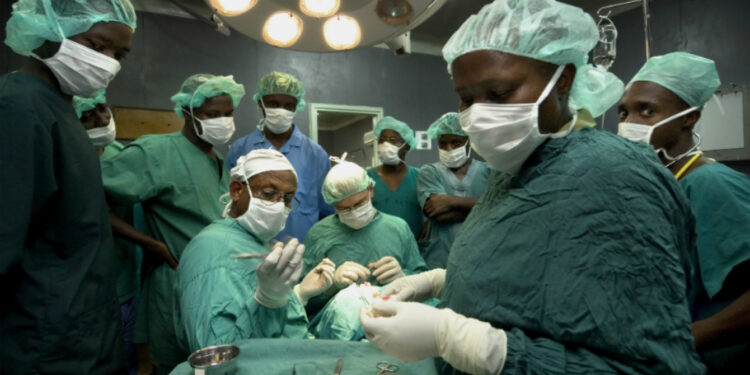South Africa budget constraints stop doctors from getting jobs
“The specter of unemployment of post-community-service doctors not only squanders their accumulated experience, but also symbolizes a broader neglect of health-care priorities,”
- Advertisement -
South Africa, which struggles with a shortage of medical personnel at state-owned hospitals, hasn’t hired more than 800 qualified doctors in public-health posts because of a shortage of funds, a medical union said.
“Annually, the department cites budget constraints as a barrier to hiring qualified medical doctors, yet no substantial measures are evident to solve the funding dilemma,” the South African Medical Association Trade Union, known as Samatu, said in a statement Thursday. “This contributes immensely to the web of factors that prompt the continuous emigration of qualified doctors.”
- Advertisement -
Doctors wanting to work in the country have to register with the Health Professions Council of South Africa, whether they qualified within the nation’s borders or at universities outside, said Jeanette Hunter, the acting director-general of the Department of Health.
- Advertisement -
“Provinces are continually putting out adverts for doctors,” she said, highlighting eight vacancies advertised in the Free State two weeks ago. “We want to employ all qualified and registered doctors.”
The department doesn’t have enough doctors and unemployed professionals should come forward with their registration numbers so that it can arrange jobs for them, Hunter said.
Global Shortages
Shortages of doctors and nurses are not unique to South Africa. They’re worse in many other African countries, according to a World Health Organization study. In the UK, chronic staff shortages in the NHS have left some hospitals near breaking point.
Nonetheless, this adds to a litany of problems confronting Africa’s most industrialized economy, which contends with frequent power cuts and where years of mismanagement and corruption at state companies and within the government have cost South African taxpayers billions of rand.
In South Africa, the country’s poorest people have access to free treatment at 3,741 public clinics and hospitals, but these facilities are often plagued by broken equipment and shortages of medicine and beds. The ratio of practitioners to population is 0.3 per 1,000, compared with 1.75 per 1,000 at private facilities.
- Advertisement -
The government plans to introduce better universal access to health care through a state-run fund that will buy services and medicines from both public and private providers. Parliament in 2023 approved enabling legislation for the program, which will be phased in over several years, but doubts remain about whether it will solve the country’s health-care woes.
The South African Medical Association, which is separate from Samatu, on Friday also highlighted the lack of public-sector posts for newly qualified doctors.
“There’s a huge shortage around the country,” said Akhtar Hussain, the chairman of the employed doctors advocacy forum at the South African Medical Association. “They end up going to the private sector” or ultimately, they leave the country, he said on SAFM Radio.
Internship Programs
South African doctors graduating from the country’s universities are required to do two years of internship and one year of community service overseen by the Health Department. This policy aims to improve equitable access to primary health-care services by ensuring enough medical personnel in under-serviced areas.
At the end of 2023, the Department of Health had 2,451 posts available for internships and had only 2,358 applicants, Hunter said.
Still, there isn’t a clear strategy for keeping doctors in public service after completing the training, Samatu said. Poor working conditions are the most common reason given by doctors for leaving the public sector.
“The specter of unemployment of post-community-service doctors not only squanders their accumulated experience, but also symbolizes a broader neglect of health-care priorities,” Samatu said in its statement. “Swift integration of these professionals into positions where their skills can be utilized is not just expedient, it is an ethical imperative.”
- Advertisement -


